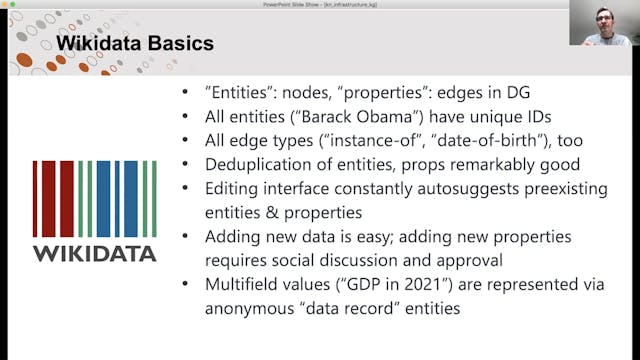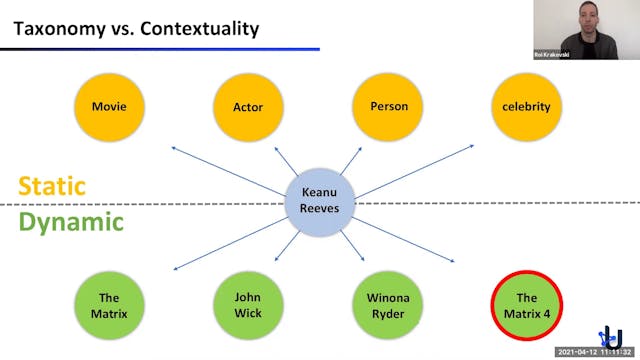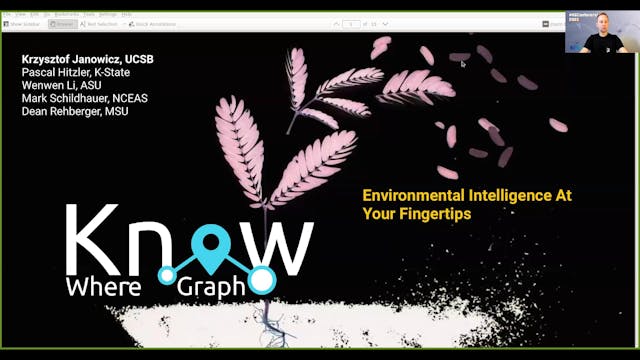Luke Feeney | Why A Knowledge Graph Is Best For Distributed Collaboration
KGC 2021
•
20m
There has been an explosion of tools - especially in the machine learning space - describing themselves as ‘git for data’. This talk will review the main open source players and link the interest to data mesh architectures. Not to jump to outcomes without first conducting the review, but it will conclude that knowledge graphs are the best way to approach distributed collaboration.
Luke Feeney from TeminusDB presents us with with a question from a forum that asked 8 years ago, "Is there an alternative to Git for version control on data?". Building upon this question, Luke talks about what has happened the last five years expanding on the "Git for data" movement. During these years, tools have been built to help build out Git for data and Luke presents the tools ideas which are placed in four areas which are versioning layer, data catalogues, data pipelining, and version databases. He will present what these areas are and present how a workspace will be like working with these types. #knowledgegraphs #knowledgegraphconference #knowledgegraphuses #knowledgegraphintheoryandpractice
Up Next in KGC 2021
-
Michael Cafarella | Infrastructure Fo...
Social Knowledge Graphs such as Wikidata have become massive successes, obtaining a level of coverage and quality that would be the envy of many traditional relational database engineering projects. And yet the downstream use scenarios for such datasets remain sharply limited compared to the vast...
-
Roi Krakovski | The Usearch Contextua...
We exploit the recent breakthroughs in Neuroscience to build web search engines based entirely on AI-generated data, thus eliminating the need to collect users’ data. We show how to generate search queries that are almost identical to real users’ queries. We use the generated queries to build a ...
-
Krzysztof Janowicz | Know, Know Where...
The KnowWhereGraph project aims at providing a densely interlinked knowledge graph for environmental intelligence applications and situational awareness services (area briefings) that enrich the data of decision-makers and data scientists with pre-integrated data custom-tailored to their spatial ...



